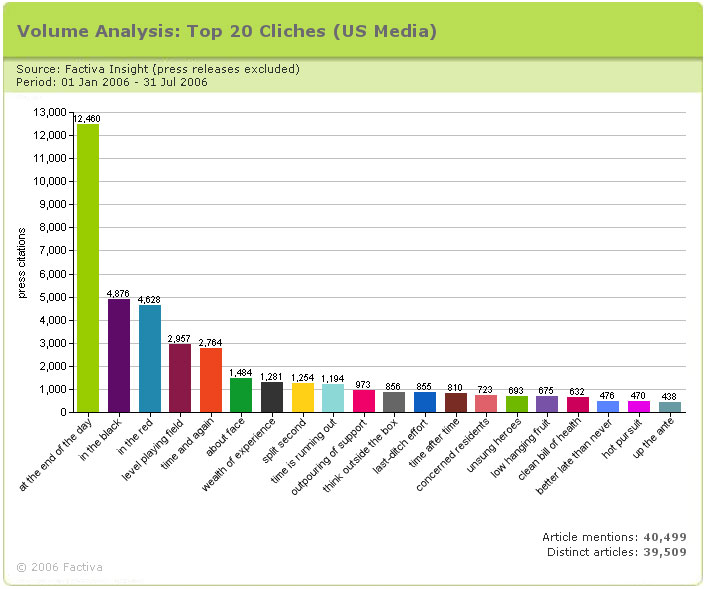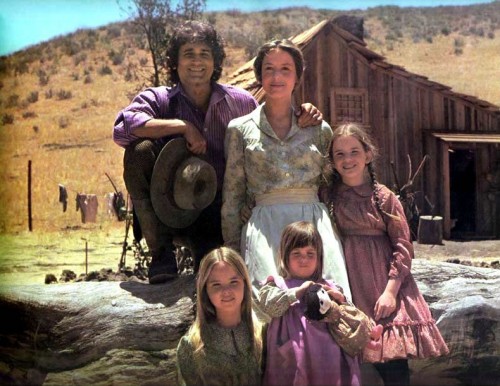This guy said in this book: My tastes in reading lately have been way more realistic, because most experimental stuff is hellaciously unfun to read.
Discuss.
Against Dualism: Yes That Is A Joke: A Response.

Against Good Stories: A Rebuttal

Earlier today Roxane posted about the merits of what she called “good stories.” She also invoked a discussion of the conventional/experimental split. I have just read her post and feel compelled to respond. (Thanks, Roxane, for providing such a provocative post!)
Let me admit right up front that this post is going to be impromptu, and therefore the organization of my thoughts will presumably be scattershot, and in no way comprehensive. I am not going to edit this post; I’m just going to type off the cuff and then post the post. I have to do it this way or else I’ll do like I always do, which is to say that I’ll tell myself I’m going to write a post responding to Roxane’s post, but then I won’t ever get around to doing it.
So here goes my thoughts as they occur to me…
The Cost of Things

At The Coachella Review, Steve Almond shares a lively exchange with an editor who received a $50,000 advance asking him to write for free, for good will—an entry for the book The Enlightened Bracketologist: The Final Four of Everything.
When Almond asks the editor in question, Mark Reiter, about the pay, the editor states:
You’re right, it is fun. Alas, there’s no money in it for contributors. Our fact-checker Matt is the only one making a net profit on this project. The best we can do is a plug for your book and promising you the (admittedly disputable) pleasure you get in putting your life’s passion to good use for a new cohort of readers.
Almond then asks the very reasonable question about who exactly is being paid for the project and Reiter states:
Yes, Richard Sandomir and I are sharing an advance of $50,000. That’s $25,000 each. Take away the 15% agency commission, it’s down to $21,250 each. I’m paying my assistant Emily Sklar an extra $5000 out of my pocket to handle the logistics (tracking down folks like you, for example). We’re delivering to Bloomsbury 100 brackets. We can’t pay some people and not others, but if we did offer payment-less than $500 would be pointless-to everyone, the math says we’d be in the red. Royalties in excess of the advance (should they materialize) go to Richard and me. That’s the economics of this project.
Almond counters with a reasonable suggestion for how everyone can walk away happy:
The only compromise I can live with is to ask that you pay me a small fee for “first-serial rights” to my bracket, which you’re then free to publish elsewhere. Or agree to pay me a tiny percentage of the royalties. This has no bearing on your other contributors. It would be an agreement written into my contract.
Your Own. Personal. Cliché.
[Elisa Gabbert is back, to holler about review language, usage, and etc! — BB]

On the Guardian’s Books Blog, Peter Robins asks commenters to confess their “personal clichés“: “Everyone has words and phrases they just can’t stop using … Not all clichés are universal.” One “TobyL” says he overuses “quietly tumultuous.” I’m simultaneously grossed out and impressed by anyone who’d admit that.
The personal cliché is evidently closely related to the concept of moves but I emphatically do not think moves are equivalent to clichés. A move may be used only once or be endlessly variable without becoming tired. Clichés, obvs, are used over and over until they lose all interest and power. A move can become a cliché or a tic, which is why it’s good to be aware of your own moves, lest they become your personal clichés. (Just as talking about moves and clichés has become my personal blogging cliché.) (Also please note that the title of this post is a total cliché in posts referring to the Guardian piece; it also appears in the original piece itself. Clichépalooza.)
Relatedly: I keep seeing links to this list of book review “clichés” but they’re mostly single words (“gripping,” “nuanced”). Aren’t these just overused words? I think I need more context to allow the use of cliché, e.g. calling a thriller “gripping” in a review is cliché. The word “gripping” is not a cliché in and of itself. (I am probably focusing too much on the etymology of the word, yes.)
I did a word cloud of my manuscript once and the most frequently used “word” was “blogpoem.” I don’t think that counts. On the other hand, there may be some words for which two usages is too many. The word “supersaturated” appears twice in The French Exit. Can I even use that once, really? I’ve got a handful of deaths. My go-to image for a while was clouds. Fucking loved clouds. But I’m not sure “cloud” is the kind of word you can overuse (I mean, within reason) and I’m not sure they’re a poetry cliché (yet) (as commenters on my last post said of the moon) and I’m not sure they’re even a personal cliché because I’ve been done with clouds for a while. Clouds, meet shitlist. And everybody’s got a body part they overuse and abuse, right? I just control-F’ed a whole lot of eyes.
What are your personal clichés and overused words? Think you don’t have any? Go read your book again and find out.
Must-See TV
 Here’s Bill Donohue facing off with Sinead O’Connor and some less interesting people on Larry King Live. BD, if you don’t know, is the rabid bull terrier of the Catholic League, a far-far right outfit whose exact relationship to Catholicism-proper I don’t know much about. In this priceless clip, he literally makes the “if there’s grass on the field, play ball” argument re child-molester priests. The best part is when Sinead asks him to please explain to her what exactly he means by “post-pubescent.”And hey, since we’re up on Sinead today, here’s her recent op-ed in The Washington Post, the scariest part of which is when she mentions that her famous pope-tearing-SNL-episode was eighteen years ago. Wow.
Here’s Bill Donohue facing off with Sinead O’Connor and some less interesting people on Larry King Live. BD, if you don’t know, is the rabid bull terrier of the Catholic League, a far-far right outfit whose exact relationship to Catholicism-proper I don’t know much about. In this priceless clip, he literally makes the “if there’s grass on the field, play ball” argument re child-molester priests. The best part is when Sinead asks him to please explain to her what exactly he means by “post-pubescent.”And hey, since we’re up on Sinead today, here’s her recent op-ed in The Washington Post, the scariest part of which is when she mentions that her famous pope-tearing-SNL-episode was eighteen years ago. Wow.
at The Rumpus, Drew Johnson has got a big fat interview with Brad Watson, author of Aliens in the Prime of their Lives, and the man about whom Barry Hannah said “Only the Irish geniuses wrote like this.” Speaking of which, don’t forget about the Rumpus’s 4/6 NYC Reading and their Read With Sam Lipsyte Contest.
Defaced, the tumblr blog we’ve all been waiting for. I can’t wait to start contributing to it seven times a day (see above artwork). via Rachel Fershleiser’s facebook. Also on facebook, Elliott David reviews the new Lost: “Totally pointless jerk off waste of time Lost episode. I was really rooting for Keamy to kill them both. The fucking Kwons are lame.” I don’t know what any of that means, and kind of hope I never find out. Hey, and how awesome is this? “Carly Fiorina: Breadless holiday of Passover is a time to ‘break bread.” (via Mark Doten’s.)
And oh boy! Sex stuff! via A&L Daily–
via same, At the American Scholar, Brian Boyd wonders about all the unpublished Nabokov that’s out there.
Mr. Hathaway
 Clocked-in a reading recently by Mitchell L. H. Douglas. I was immediately glow, since he writes Persona Texts (I call them), specifically Donny Hathaway, his family and friends, his life.
Clocked-in a reading recently by Mitchell L. H. Douglas. I was immediately glow, since he writes Persona Texts (I call them), specifically Donny Hathaway, his family and friends, his life.
Douglas is on a mission. He feels we have forgotten Donny Hathaway.
Many of the poems are the same poem, rewritten, reformed, re-done. Like jazz or mornings. Spun off into new territories, into improvs and pops and jams.
I was impressed. I told a student: “I want you to read his book and interview that poet.” A perk of teaching college is that you can assign such notions and the student pretty much will follow through. Grades are involved and so on. The student is named Aaron. This interview appears in the 2010 Broken Plate. And now online below:
A Rambling On and An Appreciation of Good Stories

I have been thinking lately about traditional storytelling, experimental writing, narrative and anti-narratives. In a few threads here and on other sites, I’ve seen discussions alluding to narrative fatigue—a weariness for stories containing traditional elements like plot, exposition, linearity, etc. Experimentation is a vital thing so this is not a condemnation of experimentation but rather, a bit of appreciation for the traditional story.
My favorite story (though I enjoy all kinds of writing) is told simply and without artifice, one where I turn the page and can’t wait to see what happens next, where the characters are interesting and well-developed and where I am invested emotionally. I love reading something so great that I want to find everything that person has ever written immediately.
I was reminded of my love for a good story when I read Scott McClanahan’s Stories II, a collection of short stories completely stripped of any bullshit. From front to back, the author’s voice was clear, charming and genuine and it was one of the most refreshing, satisfying books I’ve read in recent memory. As I put the book down I thought, “That’s how it’s done.”
“The M.F.A. is a degree in servitude.” Mr. Cohen said. “It is a way to keep writing safe–to keep reading safe from writing. That I would be criticized as being romantic, or impractical, for making that statement just goes to show everything that’s wrong. Writing is a conviction before it is a craft.” — Joshua Cohen, in an interview (and profile on his forthcoming Witz) with the Observer here.
Second Mess Section

1. After being beaten into a brain-damaging coma by five men outside a bar, Mark built a 1/6th scale World War II-era town in his backyard. –Marwencol, a photoblog
2. ‘And I personally only like high-class escorts. I don’t like sleeping with people I really love. I don’t want to sleep with them because sex cannot last, but affection can last forever. I think this is healthy. And for the way the rich live, this is possible. But the other world, I think they need porn. I also think it’s much more difficult to perform in porn than to fake some emotion on the face as an actor.’ –an interview with Karl Lagerfeld
3. Kubrick triple shot: Johannes Goransson & Joyelle McSweeney on The Shining, NotComing.com on The Shining (Kubrick: Freud in his essay on the uncanny wrote that the sense of the uncanny is the only emotion which is more powerfully expressed in art than in life, which I found very illuminating; it didn’t help writing the screenplay, but I think it’s an interesting insight into the genre.), and NotComing.com on my favorite enigma: Eyes Wide Shut.
4. ‘It turns out the doppleganger is Anya Liftig, a Brooklyn-based performance artist, and her intervention on Abramovic’s “The Artist is Present” was a performance of her own, which she has titled “The Anxiety of Influence” after the Harold Bloom book of the same title.’ –an interview with said interloper
